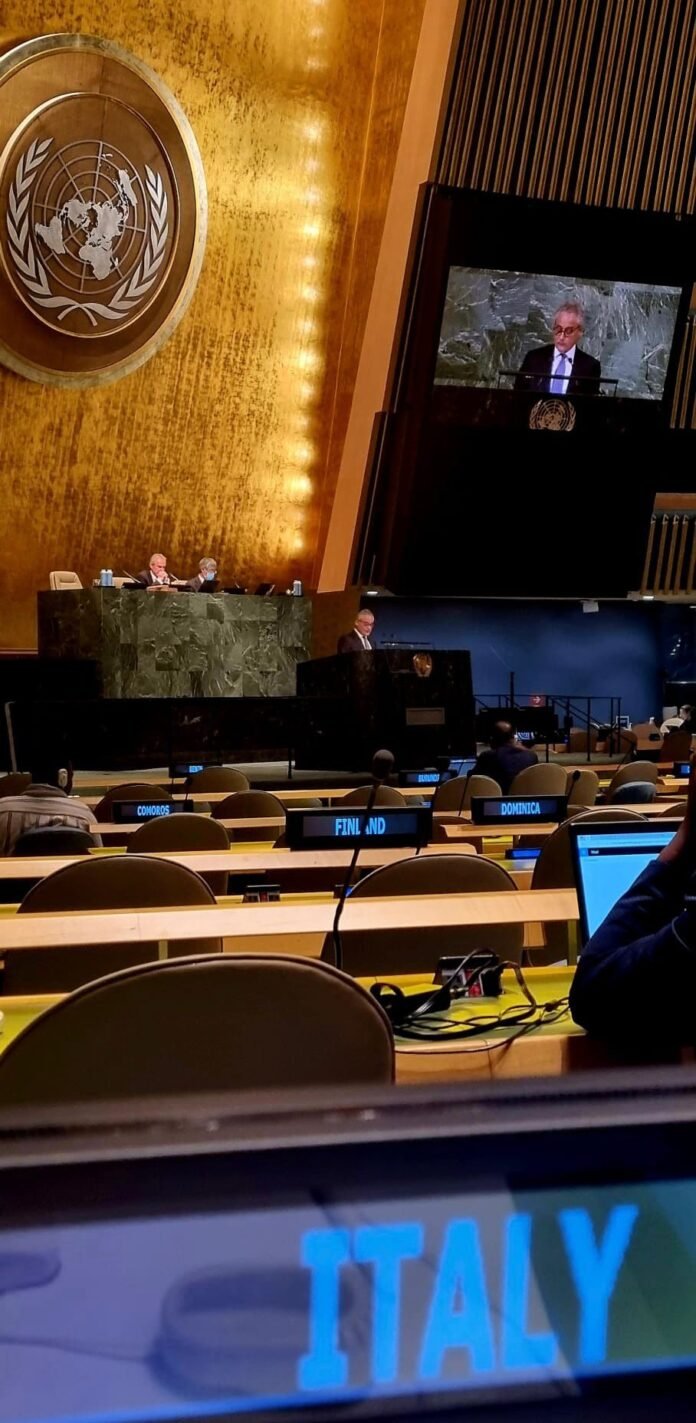NEW YORK, NOVEMBER 17 – “Only periodic elections can make the Security Council democratic and accountable. With the United for Consensus Group’s proposal, everyone benefits and gains better access, including over 60 countries that never served in it”, the Italian Permanent Representative to the United Nations, Ambassador Maurizio Massari, said today addressing the annual debate of the Intergovernative Negotiations (IGN) on the reform process.
“A reform that only serves a few is not a solution for the entire membership”, said the Ambassador. Speaking on behalf of the Group, Massari assured that UfC will once again approach the next IGN with a constructive spirit, “confident that we can build up on the positive gains achieved”. He mentioned several issues where consensus was achieved during the past session – for example, on the question of the veto there was a strong support among MS for voluntarily refraining from its use of veto -or on the need for the increased representation of developing countries and small- and medium-sized states, including Small Island Developing States (SIDS), convergences duly reflected in the “Revised Elements” paper.
“Unlike others, UfC is not asking anything for our individual members, we are not aspiring to permanent membership equally for us or for any other State! We want a reform for all, not for few, a reform of the Security Council that is beneficial for all Member States and for the UN itself”, said Massari: “Under UfC proposal no one is left behind or left out; and everyone gains better access to the Council to contribute to a more peaceful world”. He then reiterated the UfC proposal: the Security Council would consist of twenty-six members: on top of the current 15 seats, there would be nine long-term, non-permanent elected seats distributed among regional groups as follows: 3 for Africa, 3 for Asia Pacific, 2 for GRULAC and 1 for WEOG. Plus, two additional of the current two-year, elected seats assigned: one to the Eastern European Group and one, as a rotating seat, to Small Island and Developing States (SIDS) and Small States. This rotating seat would not prevent them from running within their regional group, but would – instead – be an additional way for them have fairer chances to gain access to the Security Council.
This reform model would greatly enhance regional representation, stressed the Italian Ambassador: Africa would constitute the largest group in the reformed Council; the Asia-Pacific region would have the highest percent increase; both Latin America and Eastern Europe would double their representation. The proposed distribution would also allow an increased and more stable representation for cross-regional groupings, such as the Arab group. (@OnuItalia)

